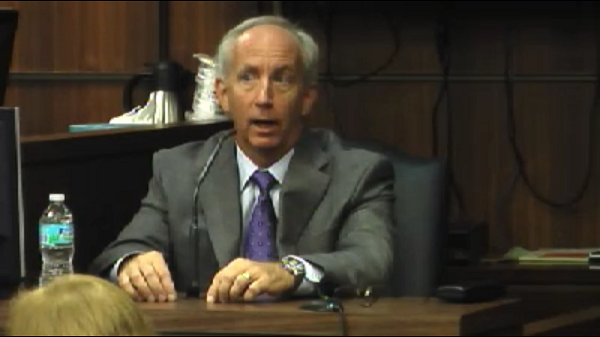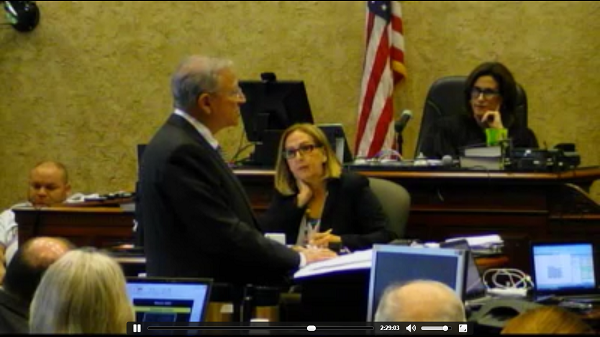Charles Garner, of Reynolds USA Inc., testifies during the punitive phase of John McCoy's suit against R.J. Reynolds, Lorillard, and Philip Morris.
Fort Lauderdale, FL—A jury awarded a Florida widower $10.5 million last week for the alleged role tobacco manufacturers played in his wife's fatal lung cancer and other diseases he claimed were caused by her cigarette addiction. McCoy v. R.J. Reynolds, et al. 2008 CV 025806.
 The award includes a $9 million punitive verdict jurors leveled Friday against Philip Morris, R.J. Reynolds, and Lorillard in John McCoy's Engle progeny suit against the tobacco makers. Last Monday, jurors awarded McCoy $1.5 million in compensatory damages.
The award includes a $9 million punitive verdict jurors leveled Friday against Philip Morris, R.J. Reynolds, and Lorillard in John McCoy's Engle progeny suit against the tobacco makers. Last Monday, jurors awarded McCoy $1.5 million in compensatory damages.
Glodine McCoy started smoking at 13 and continued for more than 50 years. She was 70 when she died in 1997 from lung cancer and after being diagnosed with artery disease, chronic obstructive pulmonary disease, and peripheral vascular disease. John McCoy claimed his wife's smoking and subsequent illnesses were caused by decades of tobacco industry messaging designed to hide the dangers of cigarettes while driving their customers’ addiction to nicotine.
Friday's verdict split the punitive award equally among the three named defendants while Monday's verdict on compensatories allocated 25% of responsibility to R.J. Reynolds, 20% to Philip Morris, 20% to Lorillard, and 35% to McCoy herself. Reynolds, which last month completed an acquisition of Lorillard, will be liable for that company's share of damages in the case.
While the first phase of trial focused on whether decades of tobacco industry deception led to Glodine McCoy's nicotine addiction and fatal illness, the trial’s second phase centered on whether the tobacco makers' more recent conduct was sufficient to limit or preclude a punitive award. Charles Garner, a director at Reynolds America Inc., the parent of R.J. Reynolds, spent two days on the witness stand detailing his company's development of arguably safer alternatives to cigarettes and explaining its tobacco education and industry transparency initiatives.
On cross examination, Garner acknowledged that some of the new tobacco products his company has developed, such as Snus, a moist tobacco powder, are still required by law to carry warnings as to their addictiveness and cancer risk. Garner also acknowledged that the tobacco industry's online publication of internal documents was driven by the terms of the Tobacco Master Settlement Agreement (MSA), a 1998 deal to resolve litigation by the attorneys general of 46 states against the tobacco makers. However, Garner disputed the claim that the document publication and other tobacco education initiatives were coerced. "It was a result of the MSA, but the MSA was a voluntary agreement so we weren't forced to do anything. We voluntarily made an agreement that we would put those out there."
Neither the parties’ attorneys nor the tobacco companies’ representatives could be reached for comment.
Related Information
The Schlesinger Law Offices' Scott Schlesinger, Steven Hammer, Jonathan Gdanski, and the Alvarez Law Firm's Alex Alvarez represent John McCoy. King & Spalding's Jeffrey Furr represents R.J. Reynolds (and Lorillard). Shook Hardy & Bacon's Bruce Tepikian represents Philip Morris.
Watch gavel-to-gavel coverage of McCoy v. R.J. Reynolds, et al.
Not a subscriber?
Click here to learn more about our unrivaled tobacco litigation library.






